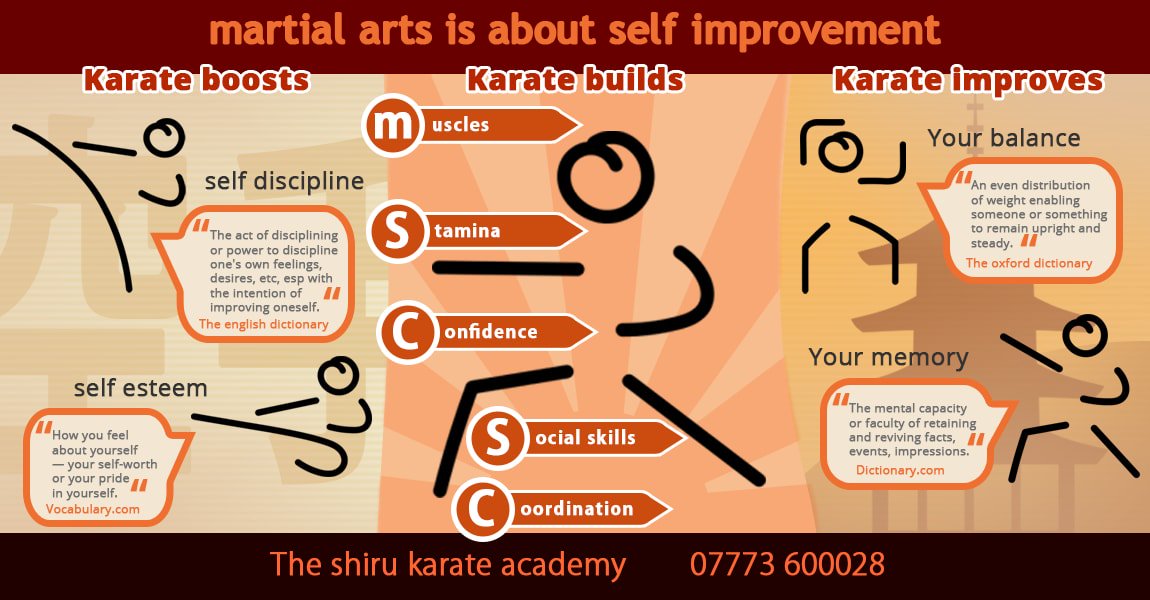Discovering The Rich Heritage And Spiritual Dimension Of Fighting Style: A Comprehensive Assessment
Discovering The Rich Heritage And Spiritual Dimension Of Fighting Style: A Comprehensive Assessment
Blog Article
Web Content Writer-McGrath Stokes
Enter the ancient globe where martial arts were born out of necessity in varied areas. Societies crafted special battling designs intertwined with historic contexts. Methods advanced over centuries with dedicated method and cultural exchanges. Today, modern-day martial arts blend traditional aspects for optimal effectiveness. Philosophically, martial arts stress self-control, self-improvement, and harmony. Respect, humbleness, and balance are foundational concepts guiding specialists towards development and resilience. Check out the midsts of this abundant background and viewpoint to uncover the extensive impacts forming this enduring self-control.
Beginnings of Fighting Style
Fighting style came from numerous areas all over the world, advancing as useful combat systems to defend against risks. These old fighting designs were developed out of requirement, with each culture crafting strategies fit to their unique atmospheres and challenges. From the grappling arts of Jujutsu in Japan to the striking strategies of Martial art in China, martial arts were deeply linked with the historical, social, and social fabric of their respective cultures.
In Japan, the samurai course polished martial arts like Kenjutsu, the art of the sword, which later advanced into the much more popularized type of Kendo. At the same time, in Brazil, Capoeira emerged as a mix of dancing and battle, produced by enslaved Africans as a means to stand up to injustice. Each martial art brings with it a rich background and ideology, reflecting the worths and beliefs of the people who practiced them.
As best martial arts to defend yourself delve into the beginnings of martial arts, you discover a tapestry of human ingenuity, durability, and the unyielding spirit of warriors throughout time.
Development of Methods
With centuries of practice and refinement, battle strategies within various martial arts have gone through a profound evolution. From ancient designs like Kung Fu and Karate to more modern self-controls such as Brazilian Jiu-Jitsu and Krav Maga, the development of techniques has been driven by a mix of social influences, sensible applications, and technical improvements.
One considerable facet of this development is the cross-pollination of techniques between different martial arts. As an example, methods from typical Japanese Jiu-Jitsu were included right into the development of Judo by Jigoro Kano in the late 19th century. This blending of designs has led to the growth of hybrid martial arts like Mixed Martial Arts (MIXED MARTIAL ARTS), which combine elements of striking, grappling, and entry methods.
In addition, the evolution of techniques has actually been formed by the increasing emphasis on performance and performance in combat. Experts have continuously looked for to improve their techniques with extensive training, experimentation, and competition, leading to the advancement of extremely specialized and reliable fighting styles. On the whole, the development of methods in martial arts shows the vibrant nature of combat and the continuous mission for improvement and advancement.
Philosophical Foundations
Exploring the underlying philosophical concepts of martial arts provides insight right into their core values and leading beliefs. At the heart of several martial arts disciplines is the idea of self-control itself. By training your mind and body to act as one natural device, you cultivate technique that extends beyond the dojo or fitness center into everyday life. This self-control incorporates regard, humility, and self-constraint, forming not simply your physical capacities however additionally your character.
One more essential thoughtful foundation in martial arts is the idea of constant self-improvement. https://www.leicestermercury.co.uk/news/leicester-news/leicester-martial-arts-school-helping-8630044 of grasping a martial art is perpetual, with professionals constantly aiming to much better themselves, both physically and psychologically. This focus on growth promotes strength, determination, and a development state of mind that can be applied to all facets of life.
Additionally, martial arts stress the value of harmony and equilibrium. Strategies are designed to utilize a challenger's energy against them, highlighting the principle of generating and rerouting force instead of satisfying it head-on. This approach reaches social relationships, promoting serene resolutions and good understanding. By embracing these thoughtful structures, martial musicians not just improve their battle abilities but also grow a way of life centered on individual development, respect, and consistency.
Final thought
In conclusion, the background and ideology of martial arts provide an abundant tapestry of custom, self-control, and self-improvement.
Consider example the tale of Bruce Lee, who reinvented martial arts by blending different styles and approaches to produce his very own distinct form of Jeet Kune Do.
Via devotion and development, martial artists continue to press boundaries and motivate others to reach their full potential both in combat and in life.
